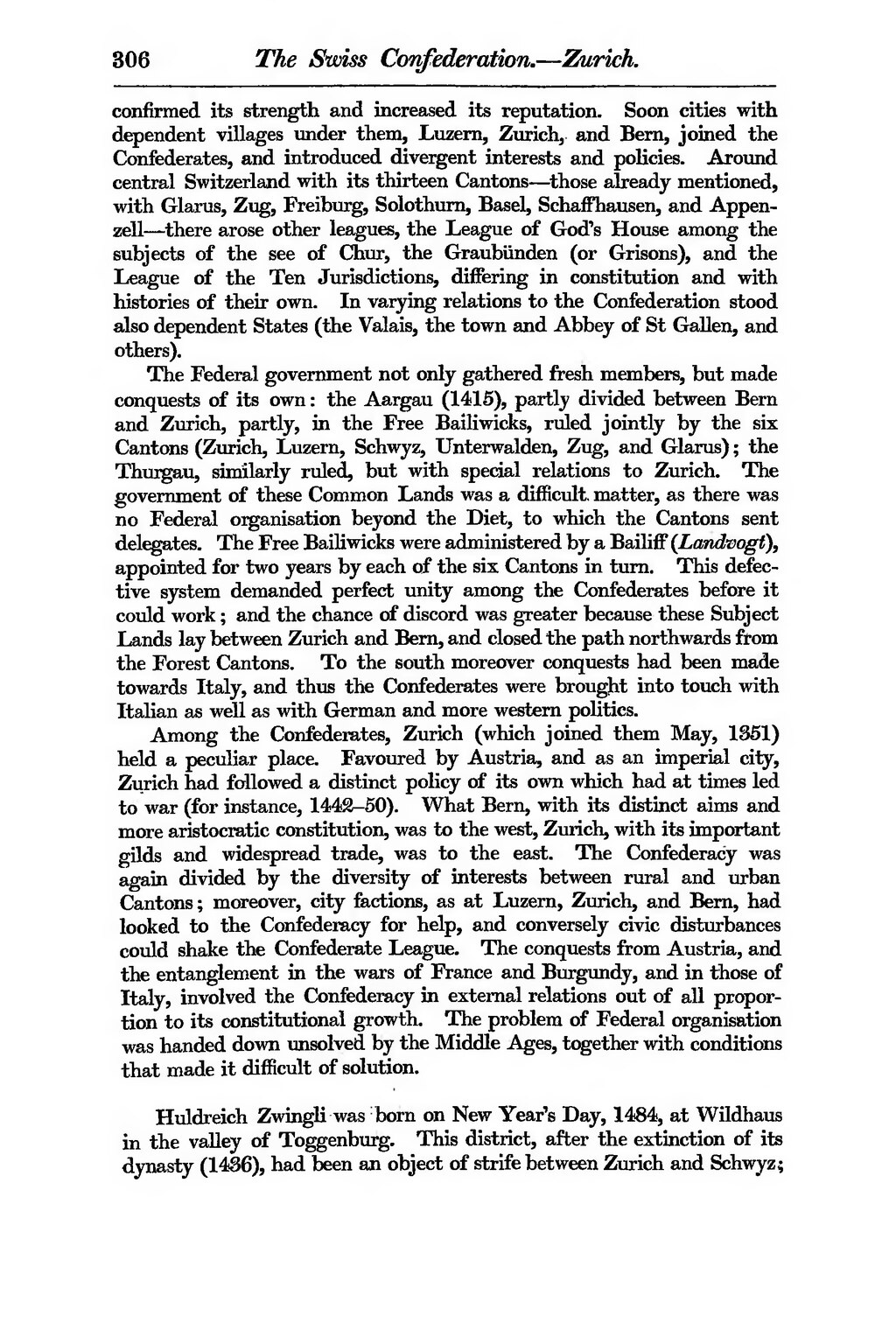confirmed its strength and increased its reputation. Soon cities with dependent villages under them, Luzern, Zurich, and Bern, joined the Confederates, and introduced divergent interests and policies. Around central Switzerland with its thirteen Cantons-those already mentioned, with Glarus, Zug, Freiburg, Solothurn, Basel, Schaffhausen, and Appen-zell-there arose other leagues, the League of God's House among the subjects of the see of Chur, the Graubünden (or Grisons), and the League of the Ten Jurisdictions, differing in constitution and with histories of their own. In varying relations to the Confederation stood also dependent States (the Valais, the town and Abbey of St Gallen, and others).
The Federal government not only gathered fresh members, but made conquests of its own: the Aargau (1415), partly divided between Bern and Zurich, partly, in the Free Bailiwicks, ruled jointly by the six Cantons (Zurich, Luzern, Schwyz, Unterwaiden, Zug, and Glarus); the Thurgau, similarly ruled, but with special relations to Zurich. The government of these Common Lands was a difficult matter, as there was no Federal organisation beyond the Diet, to which the Cantons sent delegates. The Free Bailiwicks were administered by a Bailiff (Landvogt), appointed for two years by each of the six Cantons in turn. This defective system demanded perfect unity among the Confederates before it could work; and the chance of discord was greater because these Subject Lands lay between Zurich and Bern, and closed the path northwards from the Forest Cantons. To the south moreover conquests had been made towards Italy, and thus the Confederates were brought into touch with Italian as well as with German and more western politics.
Among the Confederates, Zurich (which joined them May, 1351) held a peculiar place. Favoured by Austria, and as an imperial city, Zurich had followed a distinct policy of its own which had at times led to war (for instance, 1442-50). What Bern, with its distinct aims and more aristocratic constitution, was to the west, Zurich, with its important gilds and widespread trade, was to the east. The Confederacy was again divided by the diversity of interests between rural and urban Cantons; moreover, city factions, as at Luzern, Zurich, and Bern, had looked to the Confederacy for help, and conversely civic disturbances could shake the Confederate League. The conquests from Austria, and the entanglement in the wars of France and Burgundy, and in those of Italy, involved the Confederacy in external relations out of all proportion to its constitutional growth. The problem of Federal organisation was handed down unsolved by the Middle Ages, together with conditions that made it difficult of solution.
Huldreich Zwingli was born on New Year's Day, 1484, at Wildhaus in the valley of Toggenburg. This district, after the extinction of its dynasty (1436), had been an object of strife between Zurich and Schwyz;
